April 13, 2025 | 17:58 GMT +7
April 13, 2025 | 17:58 GMT +7
Hotline: 0913.378.918
April 13, 2025 | 17:58 GMT +7
Hotline: 0913.378.918

Artificial leather products made from mango peels by a group of students from Tra Vinh University. Photo: Minh Dam.
A team of students has successfully utilized various types of mango peels to produce three types of environmentally friendly artificial leather in dark brown, light brown, and black colors. Multiple unique products made from artificial leather have been created, including wallets for both men and women, keychains, and many others.
According to Ms. Nguyen Thi Thanh Van from Cang Long district, Tra Vinh province, the original owner of this startup idea, she began researching artificial leather products as a result of the need for environmentally friendly consumer products. Ms. Van noticed that fruit peels contain cellulose, an important component that makes up artificial leather. As a result, her team actively researched raw material sources from the provinces of An Giang and Dong Thap.
The team initially experimented at home despite their lack of equipment. With support from the Center for Innovation and Entrepreneurship at Tra Vinh University, they were given access to the university's laboratory for research purposes.
The mango peels are carefully collected, cleaned, sterilized, and preserved. Subsequently, they are dehydrated, mashed, and subjected to hot drying. They are then spread thinly on a mold and decorated with patterns. A layer of biodegradable plastic made from bananas is applied on the surface in order to improve the durability of the artificial leather. Additionally, an inner layer of scented paper is added to minimize the fruity odor.
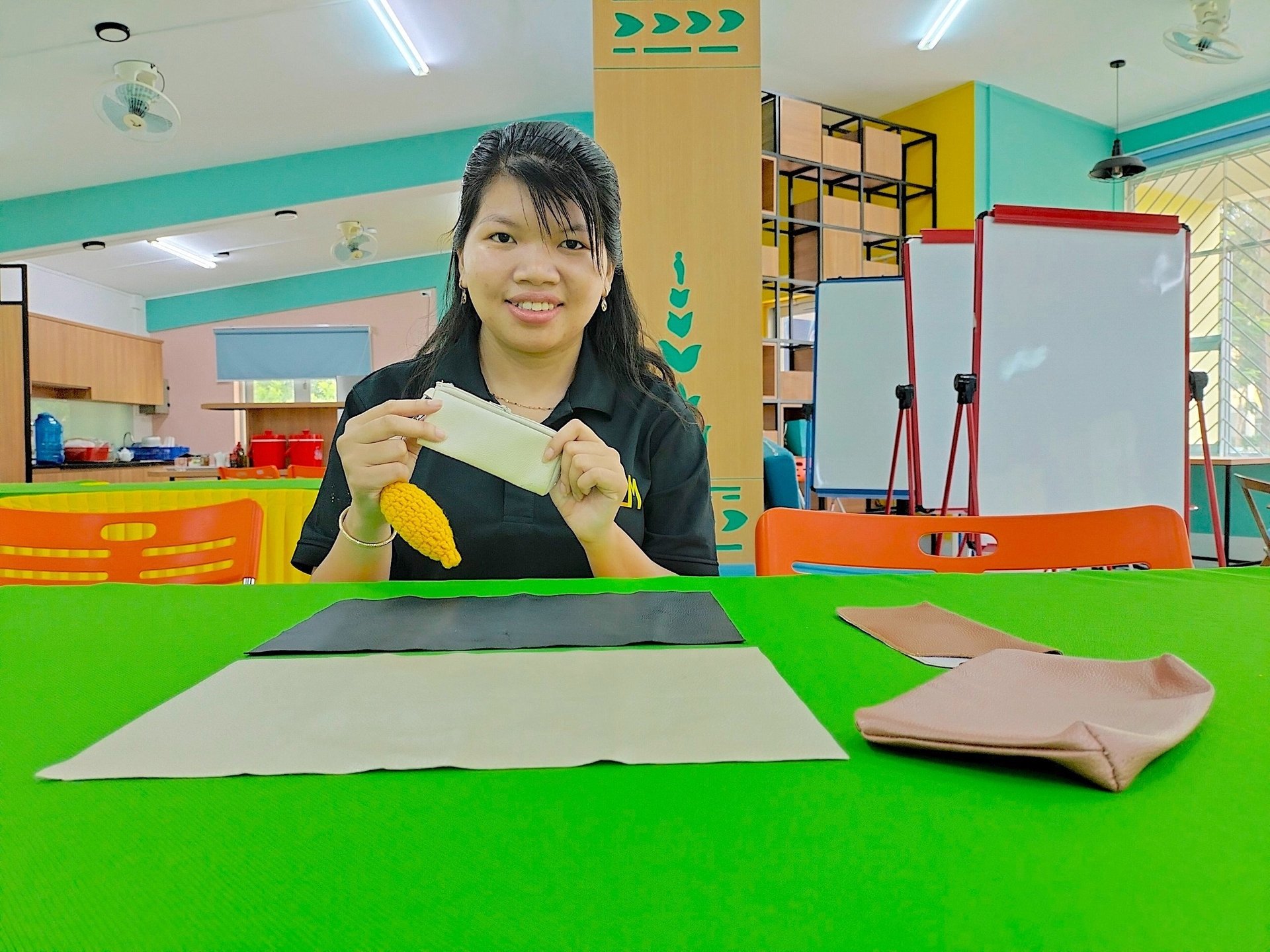
Nguyen Thi Thanh Van, creator of the startup idea for making artificial leather from mango peels. Photo: Minh Dam.
According to Ms. Van, the color of the artificial leather depends on the ripeness of the mango. Unripe mango peels produce white leather whereas slightly ripe peels produce light brown leather, and fully ripe or spoiled mangoes produce light brown leather. Black leather is dyed using bamboo charcoal. "The color of the leather depends on the ripeness, the type, and the drying temperature of the mango", Ms. Van added. As a result, the materials used for production of the artificial leather are almost entirely natural, environmentally friendly, and safe for consumers.
At first, the team had to spend at least three to four months in order to produce a piece of A4-sized leather. The long production time is caused by the time-consuming process of material collection, repeating experiments, limited teamwork capacity, and high investment costs for machinery and equipment.
After their initial successes, the team brought their product to participate in "green" entrepreneurship competitions and received feedback to improve their product and secure a stable source of raw materials. As a result, their product gained widespread popularity and usage. The project is among the 27 finalists of the Nguyen Tat Thanh Startup Idea Competition. The project has also advanced to the semifinals of the 9th Green Startup Project Competition in 2023. Additionally, the project was selected to compete in the Provincial Innovative Startup Idea Competition in September 2023.
"We hope to maximize the use of agricultural waste materials rather than using them solely as fertilizer. Our artificial leather made from mango peels can be used as raw materials for the fashion industry as well as daily life. This can increase the value of mango peels and mangoes in the agricultural economy. The product has a shelf life of approximately two years. It can be composted after being used, as it decomposes naturally at the end of its life cycle. This is the current advantage of our project", Ms. Van shared. The team aims to help farmers increase the value of their agricultural products.
Although the current production volume is limited, a well-invested factory system in the future will be able to meet the demands of large quantities. Tra Vinh University is currently assisting the project with the patent registration process.
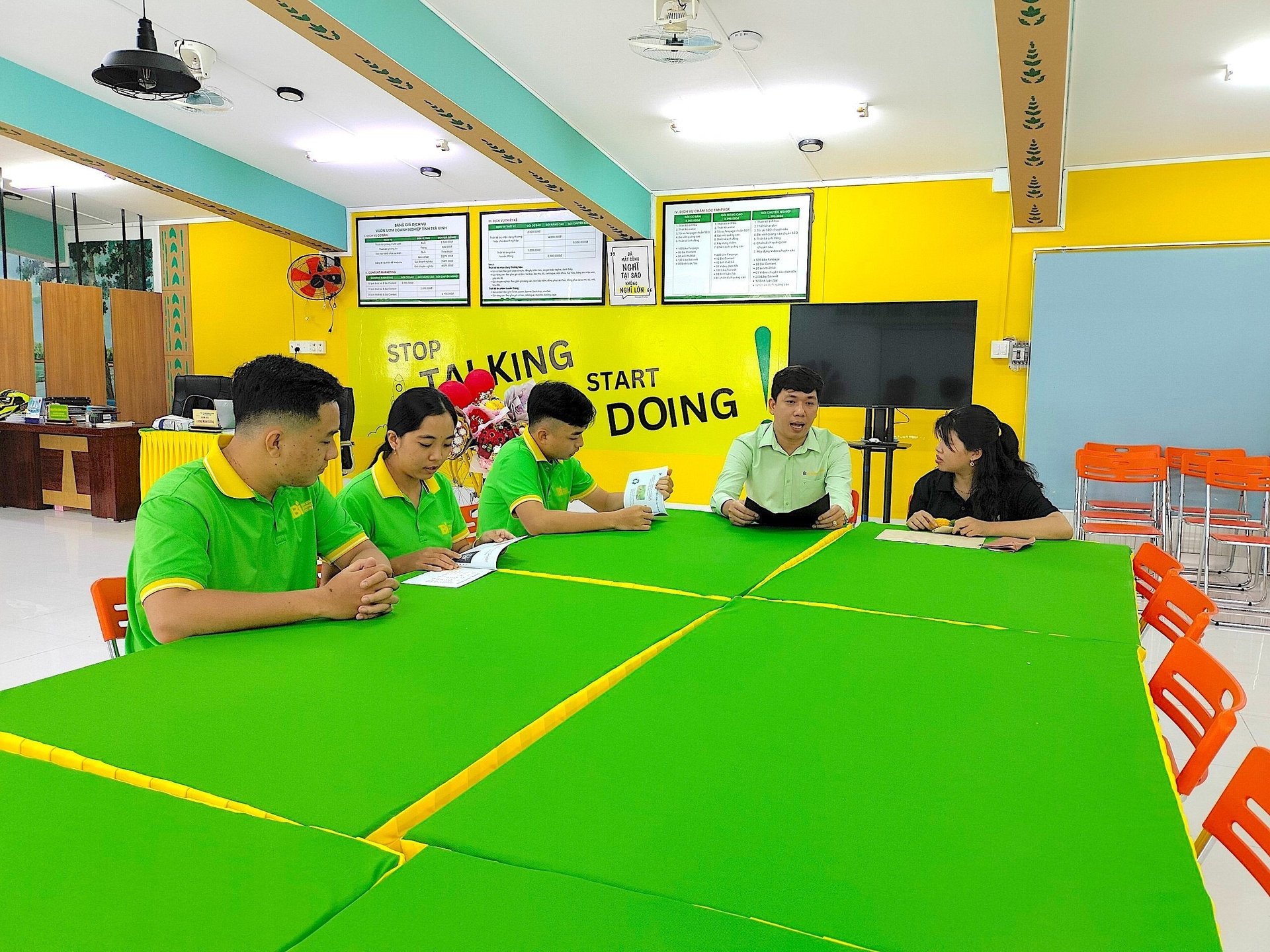
The Provincial Business Incubator is located within the campus of Tra Vinh University, where entrepreneurial ideas are nurtured. Photo: Minh Dam.
Dr. Nguyen Van Vu An, Director of the Provincial Business Incubator and Director of the Center for Innovation and Entrepreneurship at Tra Vinh University, commented: "This project has great social significance. The team has utilized agricultural by-products, namely fruit peels, which are usually discarded or used primarily as fertilizer, to create a high-value economic product. The university will continue supporting the team with product improvement, brand identity development, and communication. Subsequently, we will help the project participate in competitions in the Mekong Delta region and connect with investment funds for presentations and fundraising."
Dr. Nguyen Van Vu An added that Tra Vinh province has an advantage in terms of agriculture. Furthermore, at least 60% of startup ideas are agriculturally centric, with a focus on value-added processing. The university has established special policies to support these startups such as covering costs for product improvement, participation in competitions, professional training, etc. Moreover, when students want to establish their own businesses, the university supports them with startup establishment costs, intellectual property registration fees, and recruitment costs, and provides facilities in the initial stages. The university also collaborates with media organizations and investment funds to provide opportunities for these students to start their own businesses.
Tra Vinh University has organized numerous entrepreneurship competitions and related events to encourage the spirit of entrepreneurship among its students. To date, approximately 50,000 students have participated in these entrepreneurship events. As a result, Tra Vinh University has been ranked 11th in the world for supporting students in startup entrepreneurship and innovation. Graduates of the university have the choice to work for existing businesses or start their own businesses. The university reported that 10.48% of its graduates have become self-employed entrepreneurs in 2022.
Tra Vinh University held the final round of the "2023 Startup Ideas Competition for Tra Vinh University Students" on September 15. The competition began in May 2023, with 147 ideas submitted by teams of students from the university. After the preliminary and semi-final rounds, 10 outstanding ideas were selected to compete in the final round.
During the intense competition, the idea "Mom and Baby Spa" by the team of Nguyen Thi Mong Ngan, Bui Thi Quynh Mai, Nguyen Thi Anh Thu, and Pham Luong Tuong Phu secured the first prize. The second prize was awarded to the idea "Production of Nano Bioproducts for Preserving Agricultural Products" by the team of Nguyen Thi Thanh Ngan, Nguyen Thi Thanh Nhan, Nguyen Phuong Truc, and Le Van Hoc. The third prize was awarded to the idea "Luffa Soap" by the team of Thach Van Duy, Thach Thi Huynh Trang, and Do Ngoc Sa Huynh.
Additionally, the organizing committee awarded seven consolation prizes for the following ideas: "Production of Pumpkin Seed Milk"; "Production and Distribution of Spirulina Platensis Algae for Aquaculture"; "Zerumbet Massage Ointment"; "Automatic Water Faucet with Two Modes to Limit Water Wastage Due to User Behavior"; "Instant Tea from Quach Fruit – a Tra Vinh Specialty"; "Biological Enzyme-based Cleaning Agent from Fruit Peels"; "Honeycomb Tonic Water".
Translated by Nguyen Hai Long
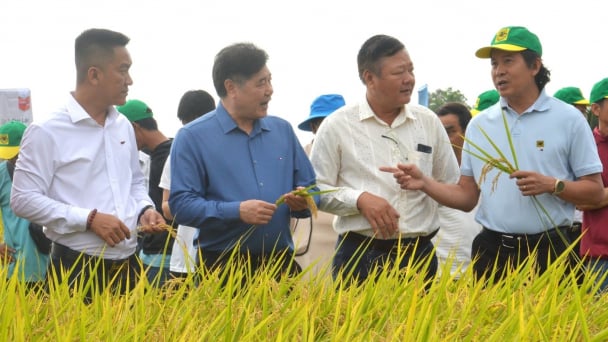
(VAN) The results from pilot fields are catalyzing the expansion of the One million hectares of high-quality, low-emission rice project in Kien Giang.
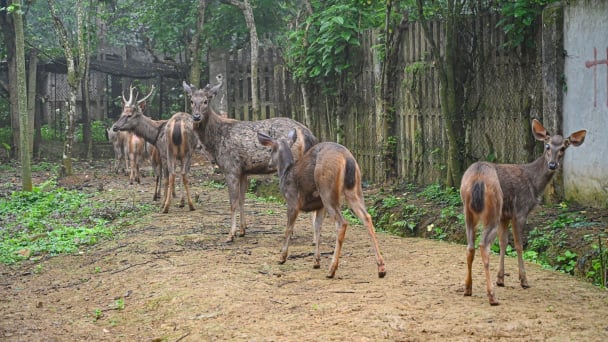
(VAN) On the morning of April 11, Cuc Phuong National Park received 18 individuals of endangered and rare wild animals from Da Nang city.
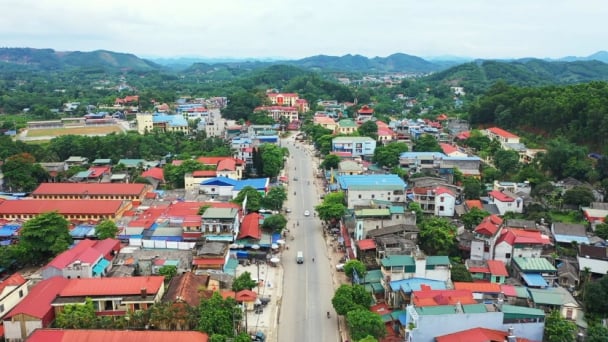
(VAN) FAO supports Vietnam in enhancing survey sampling techniques for the 2025 nationwide agricultural and rural census.
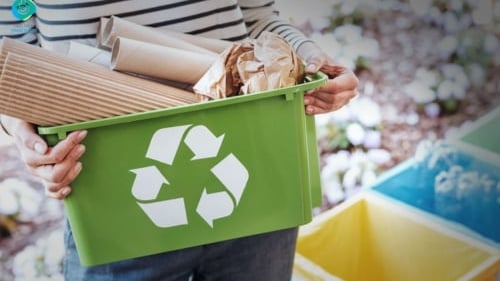
(VAN) By participating in the green transition, manufacturers become an indispensable part of the circular economy, contributing to resource optimization and environmental protection.
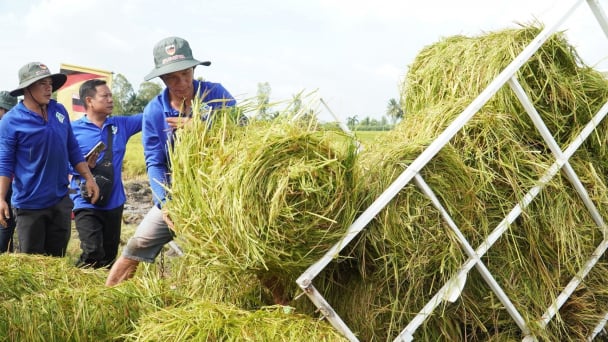
(VAN) The One Million Hectares of High-Quality and Low-Emission Rice Program can generate nearly 14 million tons of straw annually, posing an urgent requirement to diversify straw-based products.
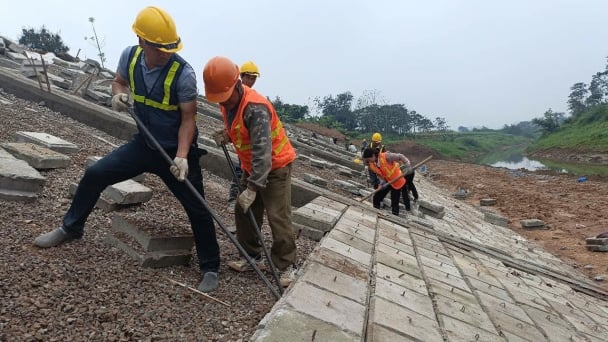
(VAN) This figure was recently announced at a conference held in Yen Bai, focusing on climate-resilient infrastructure development for ethnic minority regions.
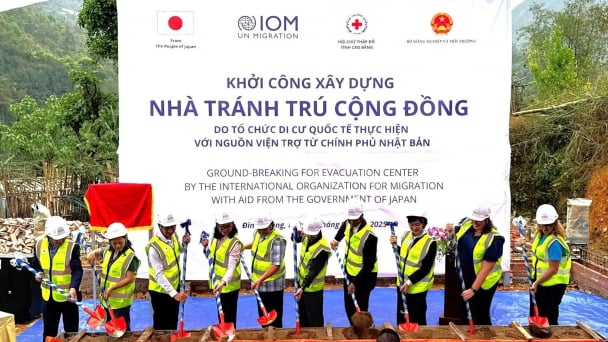
(VAN) The evacuation center is a practical work in efforts to respond to natural disasters and adapt to climate change in vulnerable areas.